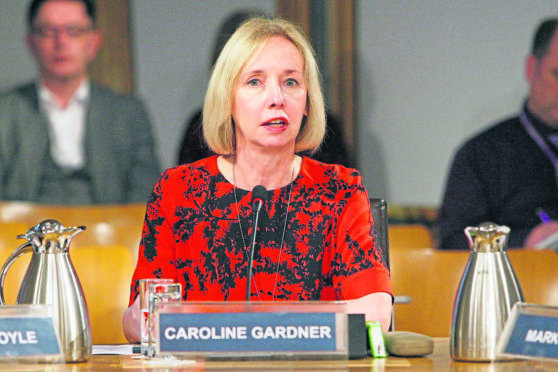Ministers have been warned that NHS finances in Scotland are not “sustainable” and urgent action must be taken to overhaul the way health services are run.
The stark verdict was delivered in a new report by the Auditor General for Scotland as she urged health chiefs to move from “short-term fire-fighting to long-term fundamental change”.
>> Keep up to date with the latest news with The P&J newsletter
Caroline Gardner said the sector faced “significant workforce challenges”, with difficulties recruiting and increases in sickness absence and staff turnover contributing to a 38% increase the bill for agency workers over the past five years.
And she revealed that the sector was beset by overspending, bailouts, one-off cash savings, a decaying and expensive estate and a glacial pace of improvement.
The chairman of BMA Scotland, meanwhile has warned the health service is in a “parlous” position and will not improve without additional funding.
The report reveals that spending on drugs has risen by 19.4% in the last five years, while the bill for building maintenance is also rising unchecked.
NHS Orkney had the lowest proportion of its buildings rated as being in “good” condition at 25%, while NHS Grampian was one of three boards that combined to account for more than half of the entire £899 million maintenance backlog in Scotland.
But while the report said that local NHS boards had been able to make “unprecedented” savings of £449.1 million in 2017/18, it is also revealed they had relied heavily on one-off savings that cannot be repeated and are “not sustainable”.
NHS Orkney had the largest proportion of savings assessed as “one off” last year, at 83%, while NHS Highland had the third highest amount in Scotland, at more than 70%.
NHS Highland was also among four boards that required a total of £50.7 million in loans from the Scottish Government to break even last year and is among four that are expected to need a combined £70.9 million this year.
Meanwhile, no board met all of the key national performance targets, only three met the 62-day target for cancer referrals and the number of people on waiting lists continues to increase.
The greatest drop in performance was in Child and Adolescent Mental Health Services, as the proportion of youngsters seen within 18 weeks fell from 83.6% to 71.2% in a year.
NHS Grampian has been the worst performer in the service, with the average wait for a child to receive mental health treatment hitting 21 weeks last year, almost double the average.
Ms Gardner said of her ultimately damning findings: “The performance of the NHS continues to decline, while demands on the service from Scotland’s ageing population are growing.
“The solutions lie in changing how healthcare is accessed and delivered, but progress is too slow.
“The scale of the challenges facing the NHS means that decisive action is needed now to deliver the fundamental change that will secure the future of this vital and valued service.”
Recommendations included longer term financial planning, improved governance arrangements and greater engagement with communities.
Dr Lewis Morrison, chairman of BMA Scotland, said: “As the BMA and others have warned for some considerable time, funding in the NHS is simply not keeping pace with demand and that has pushed NHS services across the country into the parlous position this report details.”
Health Secretary Jeane Freeman said: “We welcome the recommendations for the Scottish Government from Audit Scotland. Indeed we are already taking these forward.”
